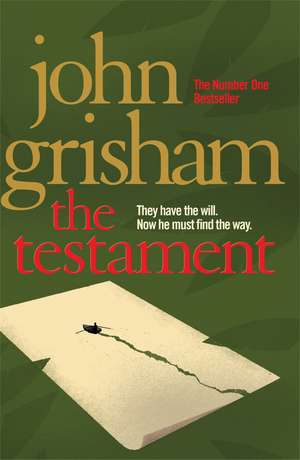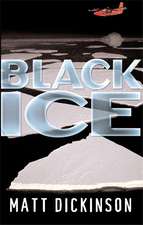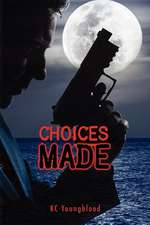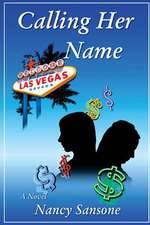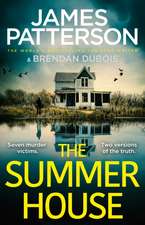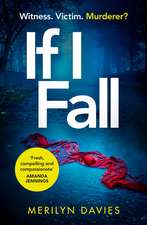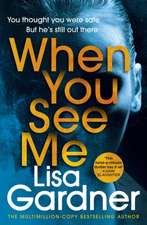The Testament
Autor John Grishamen Limba Engleză Paperback – 25 mai 2011
| Toate formatele și edițiile | Preț | Express |
|---|---|---|
| Paperback (2) | 55.53 lei 23-34 zile | +23.06 lei 6-10 zile |
| CORNERSTONE – 25 mai 2011 | 55.53 lei 23-34 zile | +23.06 lei 6-10 zile |
| Dell Publishing Company – 30 noi 2011 | 65.54 lei 3-5 săpt. |
Preț: 55.53 lei
Preț vechi: 64.80 lei
-14% Nou
Puncte Express: 83
Preț estimativ în valută:
10.63€ • 11.54$ • 8.93£
10.63€ • 11.54$ • 8.93£
Carte disponibilă
Livrare economică 04-15 aprilie
Livrare express 18-22 martie pentru 33.05 lei
Preluare comenzi: 021 569.72.76
Specificații
ISBN-13: 9780099538349
ISBN-10: 0099538342
Pagini: 480
Dimensiuni: 128 x 198 x 34 mm
Greutate: 0.34 kg
Editura: CORNERSTONE
Locul publicării:United Kingdom
ISBN-10: 0099538342
Pagini: 480
Dimensiuni: 128 x 198 x 34 mm
Greutate: 0.34 kg
Editura: CORNERSTONE
Locul publicării:United Kingdom
Notă biografică
John Grisham is the author of twenty-three novels, including, most recently, The Litigators; one work of nonfiction, a collection of stories, and a novel for young readers. He is the Chairman of the Board of Directors of the Mississippi Innocence Project at the University of Mississippi School of Law. He lives in Virginia and Mississippi.
Extras
I sit and stare through the tinted glass walls. On a clear day, I can see the top of the Washington Monument six miles away, but not today. Today is raw and cold, windy and overcast, not a bad day to die. The wind blows the last of the leaves from their branches and scatters them through the parking lot below.
Why I am worried about the pain? What's wrong with a little suffering? I've caused more misery than any ten people.
I push a button and Snead appears. He bows and pushes my wheelchair through the door of my apartment, into the marble foyer, down the marble hall, through another door. We're getting closer, but I feel no anxiety.
I've kept the shrinks waiting for over two hours.
We pass my office and I nod at Nicolette, my latest secretary, a darling young thing I'm quite fond of. Given some time, she might become number four.
But there is no time. Only minutes.
A mob is waiting--packs of lawyers and some psychiatrists who'll determine if I'm in my right mind. They are crowded around a long table in my conference room, and when I enter, their conversation stops immediately and everybody stares. Snead situates me on one side of the table, next to my lawyer, Stafford.
There are cameras pointing in all directions, and the technicians scramble to get them focused. Every whisper, every move, every breath will be recorded because a fortune is at stake.
The last will I signed gave little to my children. Josh Stafford prepared it, as always. I shredded it this morning.
I'm sitting here to prove to the world that I am of sufficient mental capacity to make a new will. Once it is proved, the disposition of my assets cannot be questioned.
Directly across from me are three shrinks--one hired by each family. On folded index cards before them someone has printed their names--Dr. Zadel, Dr. Flowe, Dr. Theishen. I study their eyes and faces. Since I am supposed to appear sane, I must make eye contact.
They expect me to be somewhat loony, but I'm about to eat them for lunch.
Stafford will run the show. When everyone is settled and the cameras are ready, he says, "My name is Josh Stafford, and I'm the attorney for Mr. Troy Phelan, seated here to my right."
I take on the shrinks, one at a time, eye to eye, glare to glare, until each blinks or looks away. All three wear dark suits. Zadel and Flowe have scraggly beards. Theishen has a bow tie and looks no more than thirty. The families were given the right to hire anyone they wanted.
Stafford is talking. "The purpose of this meeting is to have Mr. Phelan examined by a panel of psychiatrists to determine his testamentary capacity. Assuming the panel finds him to be of sound mind, then he intends to sign a will which will dispose of his assets upon his death."
Stafford taps his pencil on a one-inch-thick will lying before us. I'm sure the cameras zoom in for a close-up, and I'm sure the very sight of the document sends shivers up and down the spines of my children and their mothers scattered throughout my building.
They haven't seen the will, nor do they have the right to. A will is a private document revealed only after death. The heirs can only speculate as to what it might contain. My heirs have received hints, little lies I've carefully planted.
They've been led to believe that the bulk of my estate will somehow be divided fairly among the children, with generous gifts to the ex-wives. They know this; they can feel it. They've been praying fervently for this for weeks, even months. This is life and death for them because they're all in debt. The will lying before me is supposed to make them rich and stop the bickering. Stafford prepared it, and in conversations with their lawyers he has, with my permission, painted in broad strokes the supposed contents of the will. Each child will receive something in the range of three hundred to five hundred million, with another fifty million going to each of the three ex-wives. These women were well provided for in the divorces, but that, of course, has been forgotten.
Total gifts to the families of approximately three billion dollars. After the government rakes off several billion the rest will go to charity.
So you can see why they're here, shined, groomed, sober (for the most part), and eagerly watching the monitors and waiting and hoping that I, the old man, can pull this off. I'm sure they've told their shrinks, "Don't be too hard on the old boy. We want him sane."
If everyone is so happy, then why bother with this psychiatric examination? Because I'm gonna screw 'em one last time, and I want to do it right.
The shrinks are my idea, but my children and their lawyers are too slow to realize it.
Zadel goes first. "Mr. Phelan, can you tell us the date, time, and place?"
I feel like a first-grader. I drop my chin to my chest like an imbecile and ponder the question long enough to make them ease to the edge of their seats and whisper, "Come on, you crazy old bastard. Surely you know what day it is."
"Monday," I say softly. "Monday, December 9, 1996. The place is my office."
"The time?"
"About two-thirty in the afternoon," I say. I don't wear a watch.
"And where is your office?"
"McLean, Virginia."
Flowe leans into his microphone. "Can you state the names and birthdates of your children?"
"No. The names, maybe, but not the birthdates."
"Okay, give us the names."
I take my time. It's too early to be sharp. I want them to sweat. "Troy Phelan, Jr., Rex, Libbigail, Mary Ross, Geena, and Ramble." I utter these as if they're painful to even think about.
Flowe is allowed a follow-up. "And there was a seventh child, right?"
"Right."
"Do you remember his name?"
"Rocky."
"And what happened to him?"
"He was killed in an auto accident." I sit straight in my wheelchair, head high, eyes darting from one shrink to the next, projecting pure sanity for the cameras. I'm sure my children and my ex-wives are proud of me, watching the monitors in their little groups, squeezing the hands of their current spouses, and smiling at their hungry lawyers because old Troy so far has handled the preliminaries.
My voice may be low and hollow, and I may look like a nut with my white silk robe, shriveled face, and green turban, but I've answered their questions.
Come on, old boy, they're pleading.
Theishen asks, "What is your current physical condition?"
"I've felt better."
"It's rumored you have a cancerous tumor."
Get right to the point, don't you?
"I thought this was a mental exam," I say, glancing at Stafford, who can't suppress a smile. But the rules allow any question. This is not a courtroom.
"It is," Theishen says politely. "But every question is relevant."
"I see."
"Will you answer the question?"
"About what?"
"About the tumor."
"Sure. It's in my head, the size of a golf ball, growing every day, inoperable, and my doctor says I won't last three months."
I can almost hear the champagne corks popping below me. The tumor has been confirmed!
"Are you, at this moment, under the influence of any medication, drug, or alcohol?"
"No."
"Do you have in your possession any type of medication to relieve pain?"
"Not yet."
Back to Zadel: "Mr. Phelan, three months ago Forbes magazine listed your net worth at eight billion dollars. Is that a close estimate?"
"Since when is Forbes known for its accuracy?"
"So it's not accurate?"
"It's between eleven and eleven and a half, depending on the markets." I say this very slowly, but my words are sharp, my voice carries authority. No one doubts the size of my fortune.
Flowe decides to pursue the money. "Mr. Phelan, can you describe, in general, the organization of your corporate holdings?"
"I can, yes."
"Will you?"
"I suppose." I pause and let them sweat. Stafford assured me I do not have to divulge private information here. Just give them an overall picture, he said.
"The Phelan Group is a private corporation which owns seventy different companies, a few of which are publicly traded."
"How much of The Phelan Group do you own?"
"About ninety-seven percent. The rest is held by a handful of employees."
Theishen joins in the hunt. It didn't take long to focus on the gold. "Mr. Phelan, does your company hold an interest in Spin Computer?"
"Yes," I answer slowly, trying to place Spin Computer in my corporate jungle.
"How much do you own?"
"Eighty percent."
"And Spin Computer is a public company?"
"That's right."
Theishen fiddles with a pile of official-looking documents, and I can see from here that he has the company's annual report and quarterly statements, things any semiliterate college student could obtain. "When did you purchase Spin?" he asks.
"About four years ago."
"How much did you pay?"
"Twenty bucks a share, a total of three hundred million." I want to answer these questions more slowly, but I can't help myself. I stare holes through Theishen, anxious for the next one.
"And what's it worth now?" he asks.
"Well, it closed yesterday at forty-three and a half, down a point. The stock has split twice since I bought it, so the investment is now worth around eight-fifty."
"Eight hundred and fifty million?"
"That's correct."
The examination is basically over at this point. If my mental capacity can comprehend yesterday's closing stock prices, then my adversaries are certainly satisfied. I can almost see their goofy smiles. I can almost hear their muted hoorahs. Atta boy, Troy. Give 'em hell.
Zadel wants history. It's an effort to test the bounds of my memory. "Mr. Phelan, where were you born?"
"Montclair, New Jersey."
"When?"
"May 12, 1918."
"What was your mother's maiden name?"
"Shaw."
"When did she die?"
"Two days before Pearl Harbor."
"And your father?"
"What about him?"
"When did he die?"
"I don't know. He disappeared when I was a kid."
Zadel looks at Flowe, who's got questions packed together on a notepad. Flowe asks, "Who is your youngest daughter?"
"Which family?"
"Uh, the first one."
"That would be Mary Ross."
"Right--"
"Of course it's right."
"Where did she go to college?"
"Tulane, in New Orleans."
"What did she study?"
"Something medieval. Then she married badly, like the rest of them. I guess they inherited that talent from me." I can see them stiffen and bristle. And I can almost see the lawyers and the current live-ins and/or spouses hide little smiles because no one can argue the fact that I did indeed marry badly.
And I reproduced even more miserably.
Flowe is suddenly finished for this round. Theishen is enamored with the money. He asks, "Do you own a controlling interest in MountainCom?"
"Yes, I'm sure it's right there in your stack of paperwork. It's a public company."
"What was your initial investment?"
"Around eighteen a share, for ten million shares."
"And now it--"
"It closed yesterday at twenty-one a share. A swap and a split in the past six years and the holding is now worth about four hundred million. Does that answer your question?"
"Yes, I believe it does. How many public companies do you control?"
"Five."
Flowe glances at Zadel, and I'm wondering how much longer this will take. I'm suddenly tired.
"Any more questions?" Stafford asks. We are not going to press them because we want them completely satisfied.
Zadel asks, "Do you intend to sign a new will today?"
"Yes, that is my intent."
"Is that the will lying on the table there before you?"
"It is."
"Does that will give a substantial portion of your assets to your children?"
"It does."
"Are you prepared to sign the will at this time?"
"I am."
Zadel carefully places his pen on the table, folds his hands thoughtfully, and looks at Stafford. "In my opinion, Mr. Phelan has sufficient testamentary capacity at this time to dispose of his assets." He pronounces this with great weight, as if my performance had them hanging in limbo.
The other two are quick to rush in. "I have no doubt as to the soundness of his mind," Flowe says to Stafford. "He seems incredibly sharp to me."
"No doubt?" Stafford asks.
"None whatsoever."
"Dr. Theishen?"
"Let's not kid ourselves. Mr. Phelan knows exactly what he's doing. His mind is much quicker than ours."
Oh, thank you. That means so much to me. You're a bunch of shrinks struggling to make a hundred thousand a year. I've made billions, yet you pat me on the head and tell me how smart I am.
"So it's unanimous?" Stafford says.
"Yes. Absolutely." They can't nod their heads fast enough.
Stafford slides the will to me and hands me a pen. I say, "This is the last will and testament of Troy L. Phelan, revoking all former wills and codicils." It's ninety pages long, prepared by Stafford and someone in his firm. I understand the concept, but the actual print eludes me. I haven't read it, nor shall I. I flip to the back, scrawl a name no one can read, then place my hands on top of it for the time being.
It'll never be seen by the vultures.
"Meeting's adjourned," Stafford says, and everyone quickly packs. Per my instructions, the three families are hurried from their respective rooms and asked to leave the building.
One camera remains focused on me, its images going nowhere but the archives. The lawyers and psychiatrists leave in a rush. I tell Snead to take a seat at the table. Stafford and one of his partners, Durban, remain in the room, also seated. When we are alone, I reach under the edge of my robe and produce an envelope, which I open. I remove from it three pages of yellow legal paper and place them before me on the table.
Only seconds away now, and a faint ripple of fear goes through me. This will take more strength than I've mustered in weeks.
Stafford, Durban, and Snead stare at the sheets of yellow paper, thoroughly bewildered.
"This is my testament," I announce, taking a pen. "A holographic will, every word written by me, just a few hours ago. Dated today, and now signed today." I scrawl my name again. Stafford is too stunned to react.
"It revokes all former wills, including the one I signed less than five minutes ago." I refold the papers and place them in the envelope.
I grit my teeth and remind myself of how badly I want to die.
I slide the envelope across the table to Stafford, and at the same instant I rise from my wheelchair. My legs are shaking. My heart is pounding. Just seconds now. Surely I'll be dead before I land.
"Hey!" someone shouts, Snead I think. But I'm moving away from them.
The lame man walks, almost runs, past the row of leather chairs, past one of my portraits, a bad one commissioned by a wife, past everything, to the sliding doors, which are unlocked. I know because I rehearsed this just hours ago.
"Stop!" someone yells, and they're moving behind me. No one has seen me walk in a year. I grab the handle and open the door. The air is bitterly cold. I step barefoot onto the narrow terrace which borders my top floor. Without looking below, I lunge over the railing.
From the Hardcover edition.
Why I am worried about the pain? What's wrong with a little suffering? I've caused more misery than any ten people.
I push a button and Snead appears. He bows and pushes my wheelchair through the door of my apartment, into the marble foyer, down the marble hall, through another door. We're getting closer, but I feel no anxiety.
I've kept the shrinks waiting for over two hours.
We pass my office and I nod at Nicolette, my latest secretary, a darling young thing I'm quite fond of. Given some time, she might become number four.
But there is no time. Only minutes.
A mob is waiting--packs of lawyers and some psychiatrists who'll determine if I'm in my right mind. They are crowded around a long table in my conference room, and when I enter, their conversation stops immediately and everybody stares. Snead situates me on one side of the table, next to my lawyer, Stafford.
There are cameras pointing in all directions, and the technicians scramble to get them focused. Every whisper, every move, every breath will be recorded because a fortune is at stake.
The last will I signed gave little to my children. Josh Stafford prepared it, as always. I shredded it this morning.
I'm sitting here to prove to the world that I am of sufficient mental capacity to make a new will. Once it is proved, the disposition of my assets cannot be questioned.
Directly across from me are three shrinks--one hired by each family. On folded index cards before them someone has printed their names--Dr. Zadel, Dr. Flowe, Dr. Theishen. I study their eyes and faces. Since I am supposed to appear sane, I must make eye contact.
They expect me to be somewhat loony, but I'm about to eat them for lunch.
Stafford will run the show. When everyone is settled and the cameras are ready, he says, "My name is Josh Stafford, and I'm the attorney for Mr. Troy Phelan, seated here to my right."
I take on the shrinks, one at a time, eye to eye, glare to glare, until each blinks or looks away. All three wear dark suits. Zadel and Flowe have scraggly beards. Theishen has a bow tie and looks no more than thirty. The families were given the right to hire anyone they wanted.
Stafford is talking. "The purpose of this meeting is to have Mr. Phelan examined by a panel of psychiatrists to determine his testamentary capacity. Assuming the panel finds him to be of sound mind, then he intends to sign a will which will dispose of his assets upon his death."
Stafford taps his pencil on a one-inch-thick will lying before us. I'm sure the cameras zoom in for a close-up, and I'm sure the very sight of the document sends shivers up and down the spines of my children and their mothers scattered throughout my building.
They haven't seen the will, nor do they have the right to. A will is a private document revealed only after death. The heirs can only speculate as to what it might contain. My heirs have received hints, little lies I've carefully planted.
They've been led to believe that the bulk of my estate will somehow be divided fairly among the children, with generous gifts to the ex-wives. They know this; they can feel it. They've been praying fervently for this for weeks, even months. This is life and death for them because they're all in debt. The will lying before me is supposed to make them rich and stop the bickering. Stafford prepared it, and in conversations with their lawyers he has, with my permission, painted in broad strokes the supposed contents of the will. Each child will receive something in the range of three hundred to five hundred million, with another fifty million going to each of the three ex-wives. These women were well provided for in the divorces, but that, of course, has been forgotten.
Total gifts to the families of approximately three billion dollars. After the government rakes off several billion the rest will go to charity.
So you can see why they're here, shined, groomed, sober (for the most part), and eagerly watching the monitors and waiting and hoping that I, the old man, can pull this off. I'm sure they've told their shrinks, "Don't be too hard on the old boy. We want him sane."
If everyone is so happy, then why bother with this psychiatric examination? Because I'm gonna screw 'em one last time, and I want to do it right.
The shrinks are my idea, but my children and their lawyers are too slow to realize it.
Zadel goes first. "Mr. Phelan, can you tell us the date, time, and place?"
I feel like a first-grader. I drop my chin to my chest like an imbecile and ponder the question long enough to make them ease to the edge of their seats and whisper, "Come on, you crazy old bastard. Surely you know what day it is."
"Monday," I say softly. "Monday, December 9, 1996. The place is my office."
"The time?"
"About two-thirty in the afternoon," I say. I don't wear a watch.
"And where is your office?"
"McLean, Virginia."
Flowe leans into his microphone. "Can you state the names and birthdates of your children?"
"No. The names, maybe, but not the birthdates."
"Okay, give us the names."
I take my time. It's too early to be sharp. I want them to sweat. "Troy Phelan, Jr., Rex, Libbigail, Mary Ross, Geena, and Ramble." I utter these as if they're painful to even think about.
Flowe is allowed a follow-up. "And there was a seventh child, right?"
"Right."
"Do you remember his name?"
"Rocky."
"And what happened to him?"
"He was killed in an auto accident." I sit straight in my wheelchair, head high, eyes darting from one shrink to the next, projecting pure sanity for the cameras. I'm sure my children and my ex-wives are proud of me, watching the monitors in their little groups, squeezing the hands of their current spouses, and smiling at their hungry lawyers because old Troy so far has handled the preliminaries.
My voice may be low and hollow, and I may look like a nut with my white silk robe, shriveled face, and green turban, but I've answered their questions.
Come on, old boy, they're pleading.
Theishen asks, "What is your current physical condition?"
"I've felt better."
"It's rumored you have a cancerous tumor."
Get right to the point, don't you?
"I thought this was a mental exam," I say, glancing at Stafford, who can't suppress a smile. But the rules allow any question. This is not a courtroom.
"It is," Theishen says politely. "But every question is relevant."
"I see."
"Will you answer the question?"
"About what?"
"About the tumor."
"Sure. It's in my head, the size of a golf ball, growing every day, inoperable, and my doctor says I won't last three months."
I can almost hear the champagne corks popping below me. The tumor has been confirmed!
"Are you, at this moment, under the influence of any medication, drug, or alcohol?"
"No."
"Do you have in your possession any type of medication to relieve pain?"
"Not yet."
Back to Zadel: "Mr. Phelan, three months ago Forbes magazine listed your net worth at eight billion dollars. Is that a close estimate?"
"Since when is Forbes known for its accuracy?"
"So it's not accurate?"
"It's between eleven and eleven and a half, depending on the markets." I say this very slowly, but my words are sharp, my voice carries authority. No one doubts the size of my fortune.
Flowe decides to pursue the money. "Mr. Phelan, can you describe, in general, the organization of your corporate holdings?"
"I can, yes."
"Will you?"
"I suppose." I pause and let them sweat. Stafford assured me I do not have to divulge private information here. Just give them an overall picture, he said.
"The Phelan Group is a private corporation which owns seventy different companies, a few of which are publicly traded."
"How much of The Phelan Group do you own?"
"About ninety-seven percent. The rest is held by a handful of employees."
Theishen joins in the hunt. It didn't take long to focus on the gold. "Mr. Phelan, does your company hold an interest in Spin Computer?"
"Yes," I answer slowly, trying to place Spin Computer in my corporate jungle.
"How much do you own?"
"Eighty percent."
"And Spin Computer is a public company?"
"That's right."
Theishen fiddles with a pile of official-looking documents, and I can see from here that he has the company's annual report and quarterly statements, things any semiliterate college student could obtain. "When did you purchase Spin?" he asks.
"About four years ago."
"How much did you pay?"
"Twenty bucks a share, a total of three hundred million." I want to answer these questions more slowly, but I can't help myself. I stare holes through Theishen, anxious for the next one.
"And what's it worth now?" he asks.
"Well, it closed yesterday at forty-three and a half, down a point. The stock has split twice since I bought it, so the investment is now worth around eight-fifty."
"Eight hundred and fifty million?"
"That's correct."
The examination is basically over at this point. If my mental capacity can comprehend yesterday's closing stock prices, then my adversaries are certainly satisfied. I can almost see their goofy smiles. I can almost hear their muted hoorahs. Atta boy, Troy. Give 'em hell.
Zadel wants history. It's an effort to test the bounds of my memory. "Mr. Phelan, where were you born?"
"Montclair, New Jersey."
"When?"
"May 12, 1918."
"What was your mother's maiden name?"
"Shaw."
"When did she die?"
"Two days before Pearl Harbor."
"And your father?"
"What about him?"
"When did he die?"
"I don't know. He disappeared when I was a kid."
Zadel looks at Flowe, who's got questions packed together on a notepad. Flowe asks, "Who is your youngest daughter?"
"Which family?"
"Uh, the first one."
"That would be Mary Ross."
"Right--"
"Of course it's right."
"Where did she go to college?"
"Tulane, in New Orleans."
"What did she study?"
"Something medieval. Then she married badly, like the rest of them. I guess they inherited that talent from me." I can see them stiffen and bristle. And I can almost see the lawyers and the current live-ins and/or spouses hide little smiles because no one can argue the fact that I did indeed marry badly.
And I reproduced even more miserably.
Flowe is suddenly finished for this round. Theishen is enamored with the money. He asks, "Do you own a controlling interest in MountainCom?"
"Yes, I'm sure it's right there in your stack of paperwork. It's a public company."
"What was your initial investment?"
"Around eighteen a share, for ten million shares."
"And now it--"
"It closed yesterday at twenty-one a share. A swap and a split in the past six years and the holding is now worth about four hundred million. Does that answer your question?"
"Yes, I believe it does. How many public companies do you control?"
"Five."
Flowe glances at Zadel, and I'm wondering how much longer this will take. I'm suddenly tired.
"Any more questions?" Stafford asks. We are not going to press them because we want them completely satisfied.
Zadel asks, "Do you intend to sign a new will today?"
"Yes, that is my intent."
"Is that the will lying on the table there before you?"
"It is."
"Does that will give a substantial portion of your assets to your children?"
"It does."
"Are you prepared to sign the will at this time?"
"I am."
Zadel carefully places his pen on the table, folds his hands thoughtfully, and looks at Stafford. "In my opinion, Mr. Phelan has sufficient testamentary capacity at this time to dispose of his assets." He pronounces this with great weight, as if my performance had them hanging in limbo.
The other two are quick to rush in. "I have no doubt as to the soundness of his mind," Flowe says to Stafford. "He seems incredibly sharp to me."
"No doubt?" Stafford asks.
"None whatsoever."
"Dr. Theishen?"
"Let's not kid ourselves. Mr. Phelan knows exactly what he's doing. His mind is much quicker than ours."
Oh, thank you. That means so much to me. You're a bunch of shrinks struggling to make a hundred thousand a year. I've made billions, yet you pat me on the head and tell me how smart I am.
"So it's unanimous?" Stafford says.
"Yes. Absolutely." They can't nod their heads fast enough.
Stafford slides the will to me and hands me a pen. I say, "This is the last will and testament of Troy L. Phelan, revoking all former wills and codicils." It's ninety pages long, prepared by Stafford and someone in his firm. I understand the concept, but the actual print eludes me. I haven't read it, nor shall I. I flip to the back, scrawl a name no one can read, then place my hands on top of it for the time being.
It'll never be seen by the vultures.
"Meeting's adjourned," Stafford says, and everyone quickly packs. Per my instructions, the three families are hurried from their respective rooms and asked to leave the building.
One camera remains focused on me, its images going nowhere but the archives. The lawyers and psychiatrists leave in a rush. I tell Snead to take a seat at the table. Stafford and one of his partners, Durban, remain in the room, also seated. When we are alone, I reach under the edge of my robe and produce an envelope, which I open. I remove from it three pages of yellow legal paper and place them before me on the table.
Only seconds away now, and a faint ripple of fear goes through me. This will take more strength than I've mustered in weeks.
Stafford, Durban, and Snead stare at the sheets of yellow paper, thoroughly bewildered.
"This is my testament," I announce, taking a pen. "A holographic will, every word written by me, just a few hours ago. Dated today, and now signed today." I scrawl my name again. Stafford is too stunned to react.
"It revokes all former wills, including the one I signed less than five minutes ago." I refold the papers and place them in the envelope.
I grit my teeth and remind myself of how badly I want to die.
I slide the envelope across the table to Stafford, and at the same instant I rise from my wheelchair. My legs are shaking. My heart is pounding. Just seconds now. Surely I'll be dead before I land.
"Hey!" someone shouts, Snead I think. But I'm moving away from them.
The lame man walks, almost runs, past the row of leather chairs, past one of my portraits, a bad one commissioned by a wife, past everything, to the sliding doors, which are unlocked. I know because I rehearsed this just hours ago.
"Stop!" someone yells, and they're moving behind me. No one has seen me walk in a year. I grab the handle and open the door. The air is bitterly cold. I step barefoot onto the narrow terrace which borders my top floor. Without looking below, I lunge over the railing.
From the Hardcover edition.
Recenzii
“A compulsory page-turner.”—Newsweek
“Grisham includes his trademark legal wrangling, zippy plot and engaging minor characters. . . . His hordes of fans won’t be disappointed.”—USA Today
“Absorbing . . . The pages fly by.”—Chicago Tribune
“Entertaining.”—The New York Times Book Review
“Grisham includes his trademark legal wrangling, zippy plot and engaging minor characters. . . . His hordes of fans won’t be disappointed.”—USA Today
“Absorbing . . . The pages fly by.”—Chicago Tribune
“Entertaining.”—The New York Times Book Review
